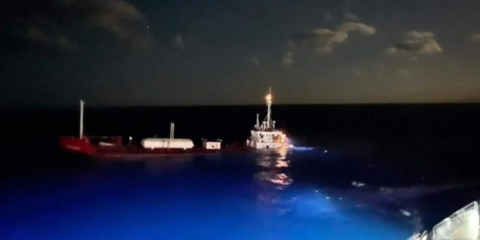The crude and product tanker fleet is on course to shrink in coming years with newbuilding contracts in 2022 the lowest on record, according to Bimco.
The industry group’s chief shipping analyst, Niels Rasmussen, said only 23 tankers amounting to 1.6m dwt were contracted in the first six months of 2022.
The total dwt — representing four crude tankers and 19 product tankers — is barely half of the previous record six-monthly low of 3m dwt seen during the last 26 years, he said.
“Unless contracting picks up, it seems that we may see both the crude and product tanker fleet reducing in size in the coming years,” said Rasmussen.
French shipbroker Barry Rogliano Salles (BRS) this week predicted a 1% drop in fleet capacity in each of 2024, 2025 and 2026. A total of 15 VLCCs are set for delivery in 2023, three in 2024 and none after that.
Rasmussen said owners may have been put off by surging newbuilding prices, which are at their highest levels since 2008, and indecision over which fuel to choose. The favourite for new orders has been LNG but methanol may be gaining in popularity, he said.
It has left the orderbook to fleet ratio at 5.1% for both crude and product tankers, the lowest since 1996.
More than a quarter of the crude and product tanker capacity is at least 15 years old, so demolitions are likely to exceed deliveries, he said.
In its monthly Horizon report, Maritime Strategies International said on Wednesday that two VLCCs were reportedly scrapped in July, ending a long stretch of no scrapping, despite significantly lower rates.
In the short to medium term, Rasmussen said there was a good case for more orders, owing to the continued global recovery from the Covid-19 pandemic and the prospect of better rates owing to the European Union ban on Russian oil.
Longer-term, demand prospects are uncertain with the International Energy Agency predicting demand for oil peaking over the next decade. But contracting is still likely to increase as owners are forced to renew their fleets because of the demands for decarbonisation for the industry, he said.(Copyright)




